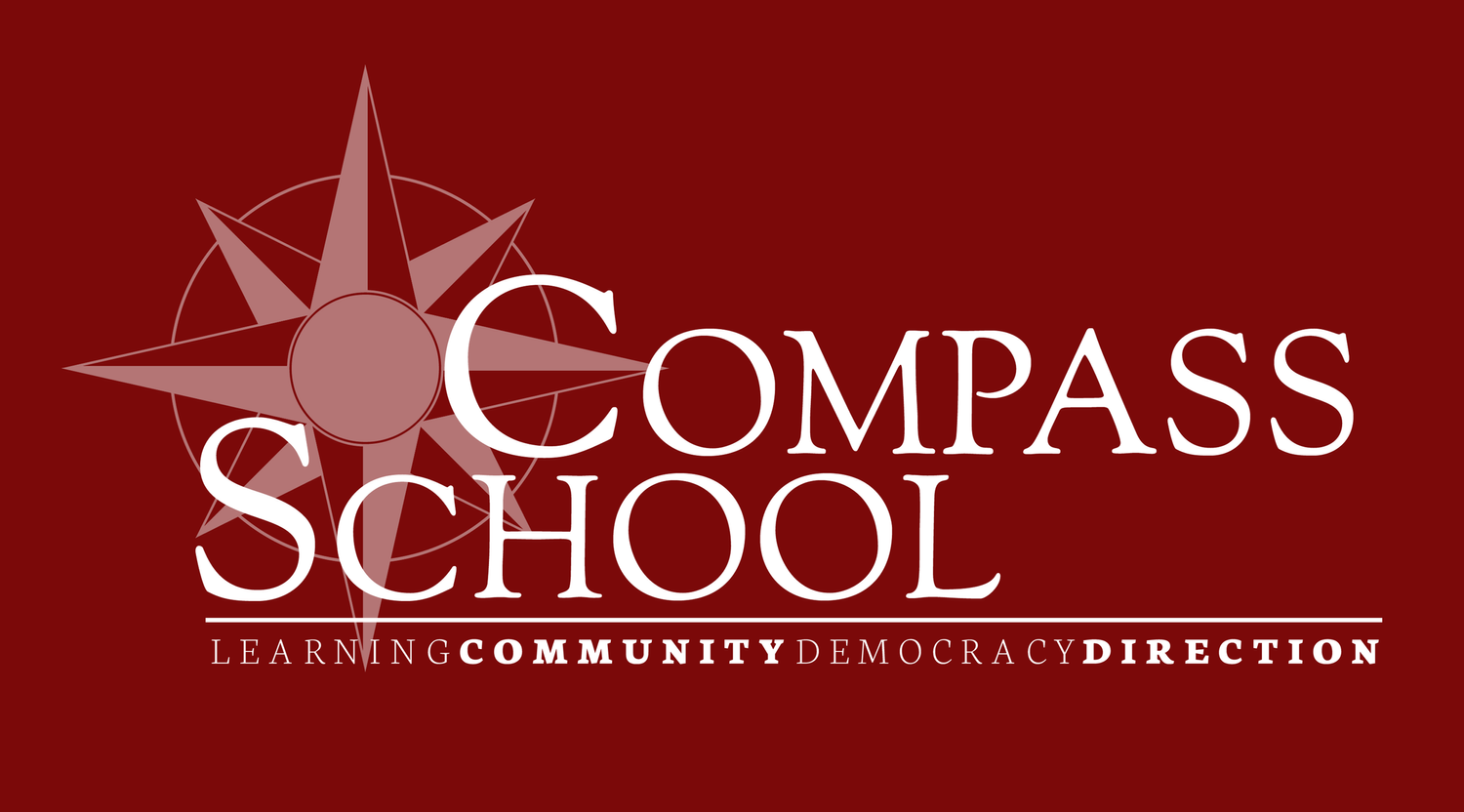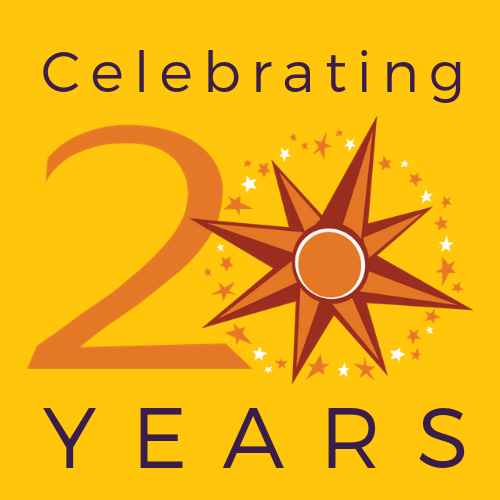Over 20 years, Compass School has grown into a thriving community of scholars and artists, students and teachers, faculty and families.
The Compass curriculum is built on design principles inspired in part by the values of the Coalition of Essential Schools. Our five learning realms are the foundation of a Compass education and guide the development of graduates who are good students and good people. These realms are . . .
. . . Knowledge, Thinking and Reasoning, Personal Development, Communication, and Community Involvement. These five realms help develop a sense of service, personal growth, academic excellence and, above all, self-awareness.
Students are continually asked to reflect on their education through the portfolio process and the highly interdisciplinary and inquisitive nature of our classes. This introspection creates a space for students to value their education and take ownership of their learning.
For the past 20 years, this approach has helped students pursue their dreams and achieve success in post-graduate experiences ranging from acceptance at the nation’s top colleges to service work in their local communities and abroad.
Vision Statement
Compass School provides a unique model for publicly accessible education, serving children in our region while making an impact on the larger educational world. We embody an inspiring learning community that balances personalized education with high expectations for all, leading each student to successful graduation and post-graduate experiences.
Mission Statement
The Compass School inspires and educates students to gain the knowledge, skills, and personal qualities essential to pursuing their dreams and having a positive impact on the world.
“I love the holistic nature of a Compass education–students seamlessly transition from work to play, from science to music, from artist to activist.”
Reflections on our 20th Anniversary by founding Director, Rick Gordon
20 years! I’m not sure we ever envisioned Compass reaching this milestone. Immersed in serving students and continually improving the program, I don’t think we recognized how much we have accomplished. In looking back on documents from the school’s earliest years, it’s striking how consistent our programs and practices have been over time.
The essential elements of the school advertised even before the school started included: the value of community, personalized learning plans, assessment by exhibition, attention to both habits of mind and academic standards, a flexible and responsive schedule, active learning, living democracy, and diverse learning experiences to educate the whole person.
While our practices have evolved over time, our values have never wavered. From our inception, we held a belief that every student could find success, students need to have their voices cultivated and heard, individuality should be celebrated, everyone should have diverse learning experiences, and we’re all learners together.
Reviewing two decades of Compass Journals, what stands out is the story thread that weaves throughout these 20 years. Just looking at the titles over the years, a few themes arise:
1. “Raising Good Kids”: Successful adults in our rapidly changing, complex world draw on having had diverse experiences and skills, and a “Yes I Can” attitude we cultivate here.
2. “Developmental Learning”: Helping students tell their own story through “Acceptance, Achievement, Affirmation,” and valuing “Doing the Little Things Right.”
3. “Progressive Education 2.0”: Assuring traditional learning goals while equally valuing “21st century, soft skills.”
4. “Making a Difference in the World”: Service, community based learning, and real world learning experiences provide meaning and purpose.
5. “What is Learning: Ambitious Adventures”: The idea that powerful learning goes far beyond traditional classrooms and may take us far afield, literally and figuratively.
We know that contributing in the dynamic global world of the 21st century, one needs much more than academic ability. To be successful, people will need to communicate and collaborate, be flexible and adaptable, think both critically and creatively, and know how to problem solve in novel situations that will inevitably arise as the world changes around us. . . .
Read more about the school’s founding, see the timeline of milestones, and catch up with the latest happenings in the classroom in our most recent Compass Journal.
Compass School does not discriminate in any of our programs on the basis of race, color, religion, age, gender, sexual orientation, disability, national origin, or reprisal or retaliation for prior civil rights activity.



